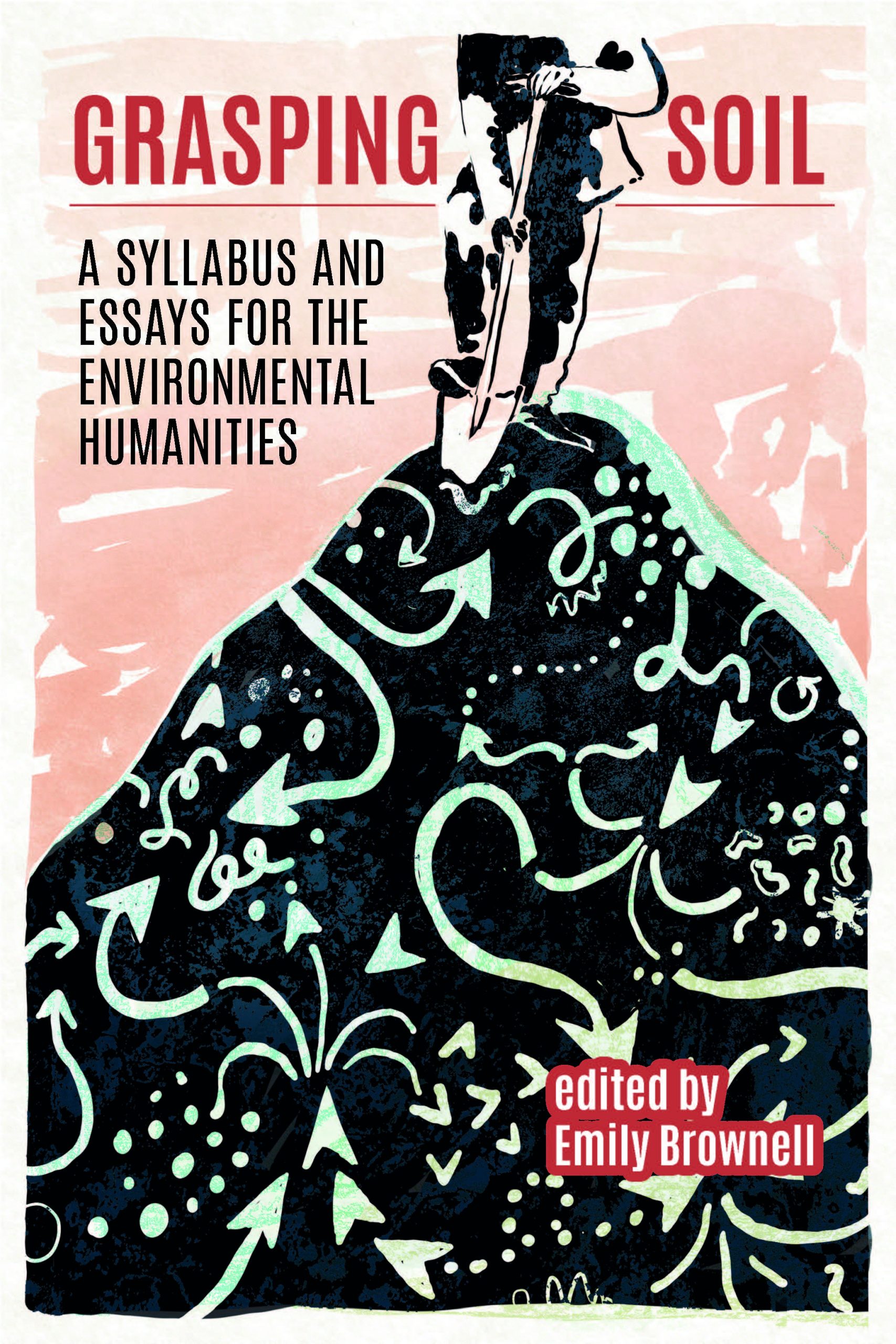Grasping Soil (forthcoming)
A Syllabus and Essays for The Environmental Humanities
Edited by Emily Brownell

Soil is a nearly ubiquitous presence in our lives, regardless of whether we spend much time noticing it. Soil holds worlds within itself and also builds other worlds; it devours and remakes things; it sustains life and gives cover to the dead. Grasping Soil is a collectively-authored syllabus and series of essays, all examining, with different inflections, the fundamental question: what comes into view when we ‘grasp’ soil as a vessel of human history and point of view for inquiry?
Part I is an interdisciplinary syllabus that traces the contours of a growing body of work in the humanities that uses soil as a bridge between human and more-than-human histories. The syllabus offers a template of readings, discussion questions and assignments with an accompanying website for easy access to the supporting materials. The essays that follow in Part 2 explore particular moments and locations in which communities have modified, depleted or remade soil to suit a particular need. In examining these engagements with soil, each essay provides a particular view on the social, political or economic conditions that they reflect and create. The essays range from mountain top mining in Appalachia to the construction of a load-bearing monolith in Nazi-era Berlin, and the layered, residual histories of agricultural projects in Tanzania. As these essays make clear, soil is a lively presence not an inert recipient of human desires and actions. It is a living and not always governable community with ever-changing stories to tell.
This book is Open Access through the support of UKRI.
Editor:
Emily Brownell is a Senior Lecturer in Environmental History at the University of Edinburgh. Her current project, Stories from the Substrate, considers twentieth-century East African history through a variety of interventions with, and extractions from, the soil.
CONTENTS
Introduction
PART I: SYLLABUS
Soil as Substrate
Cynthia Browne, Johannes Lehmann
Soil as Archive
Amiel Bize, Seth Denizen, Jayson Maurice Porter
Soil as Health
Emily Brownell, Tamar Novick, Lulu Tessua
Soil as Belonging
Dotan Halevy, Basil Ibrahim, Paul Kurek, Steven Stoll
Syllabus bibliography
PART II: ESSAYS
Soil’s Metabolisms
Under the electron microscope, Lehmann Lab, Cornell University, New York:
Behaviour instead of Identity: Functional Complexity of Organic Matter as an Organising Principle in Soil Ecosystems
Johannes Lehmann
British Mandate Palestine:
“The Fertility of the Soil is in Your Hand”: On Manure and the Colonial Roots and Branches of the Organic Movement
Tamar Novick
Kwale District, Kenya:
Building Roads, Counting Worms: Soil as a Medium for Parasitic Relations
Emily Brownell
Residual Histories
The Ring of Fire, Americas:
Arsenic Cycles through Racism and Empire
Jayson Maurice Porter
Appalachia, USA:
Mountains Become Wasteland
Steven Stoll
Ndungu, Tanzania:
Knowing Soil as a Living Thing, Treating it as a Non-Living Body: Contradictory forms of Care
Lulu Tessua
Lusatia, Germany:
Punkt Null (Point Zero): An Ecological Substrate Begins Anew
Cynthia Browne
Substrates and Belonging
Berlin, the Cosmos:
Blood over Soil? Albert Speer’s Heavy Load-Bearing Cylinder, Glacial Till, and Racial Terra Forming
Paul Kurek
The Gaza Strip, Palestine:
Cultivating an Ancient Soil: Sub-dune Histories and Ecologies
Dotan Halevy
Publication date: 1 March 2026
ISBN 978-1-917813-02-0 (PB) £30
eISBN 978-1-917813-03-7 (Open Access PDF)
eISBN 978-1-917813-09-9 (Open Access ePub)
